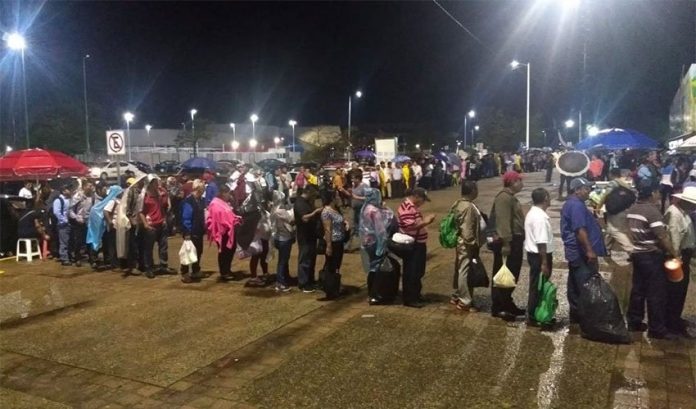President López Obrador officially launched construction of the new US $8-billion refinery in Tabasco yesterday even though some studies for the project haven’t been carried out and it lacks all the required permits.
The president reiterated his pledge that the Dos Bocas refinery will be completed in three years and not cost more than 150 billion pesos.
Mexico “depends too much on buying foreign gasoline,” López Obrador said, promising that while the refinery is being built energy costs won’t increase and that when it has been completed – and the country’s six existing refineries have been rehabilitated – they will come down.
López Obrador announced last month that the state oil company will build the refinery on the Gulf of Mexico coast because the bids made by private companies were too high and their estimated time frames to complete the project were too long.
Last week, he said that his administration has “prior authorization” to begin work.
However, the Mexican Center for Environmental Law and Greenpeace warned that construction of the project could not yet legally start because its approval was based on a 2012 environmental impact statement (EIS) for an oil field, not a refinery, and it lacked other required permits as stipulated by environmental laws.
Despite their opposition, Energy Secretary Rocio Nahle said yesterday that the EIS approved by the Security, Energy and Environmental Agency (ASEA) authorizes the commencement of conditioning work at the site.
“Pemex, IMP [the Mexican Institute of Petroleum] and the Secretariat of Energy have worked constantly with ASEA and Semarnat [the Secretariat of the Environment] to comply with . . . the technical study for the change of land use, it’s already pre-approved and this week the final ruling will be presented,” she said.
Nahle added that an environmental risk assessment and a regional environmental impact statement will be presented to the relevant authorities within a period of 17 days.
At the end of June, she said, “we will be tendering six construction contracts . . . so that all the parts that are under construction can start at the same time and we can finish the refinery in three years.”
Construction of the refinery will generate more than 100,000 direct and indirect jobs, according to the government, and once in operation will have the capacity to produce 340,000 barrels of petroleum a day.
However, experts have questioned the heavily-indebted state oil company’s technical capacity to execute the project while the Mexican Institute for Competitiveness, a think tank, warned that the refinery only has a 2% chance of success.
Source: Reforma (sp)
